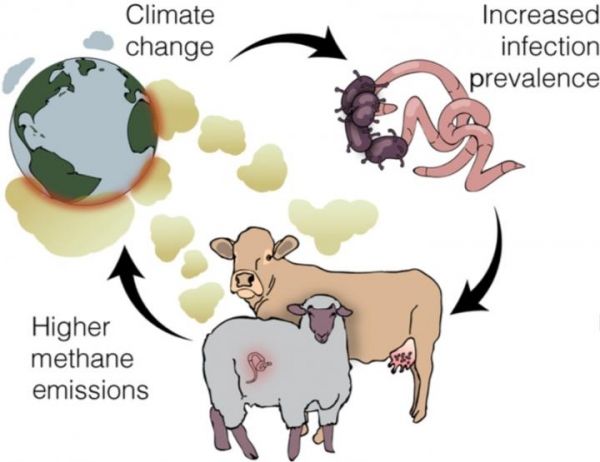Climate change is affecting the spread and severity of infectious diseases around the world — and infectious diseases may in turn be contributing to climate change, according to a new paper published Oct. 7 in Trends in Ecology & Evolution.
The research, led by Vanessa Ezenwa, a professor of ecology at the University of Georgia, and funded by the Living Earth Collaborative at Washington University in St. Louis, describes how parasites can cause animals to produce more methane, a powerful greenhouse gas.
“There is evidence that climate change, and warming temperatures in particular, are impacting some infectious diseases and increasing their prevalence,” Ezenwa said. “If that’s happening for livestock diseases, and simultaneously higher prevalence is triggering increased methane release, you could end up with what we call a vicious cycle.”
Read more at: Washington University in St. Louis
Researchers identified a potential feedback loop arising from interactions among climate, infectious diseases and methane emissions. (Image courtesy of Trends in Ecology & Evolution) (Photo Credit: Trends in Ecology & Evolution)


